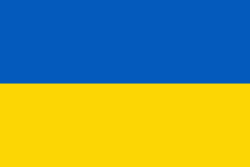Ivanivka Raion (Ivanivka Raion)
Ivanivka Raion (Іванівський район) was a raion (district) in Odesa Oblast of Ukraine. Its administrative center was the urban-type settlement of Ivanivka. The Velykyi Kuialnyk flowed through the district. The raion was abolished on 18 July 2020 as part of the administrative reform of Ukraine, which reduced the number of raions of Odesa Oblast to seven. The area of Ivanivka Raion was merged into Berezivka Raion. The last estimate of the raion population was
Ivanivka was founded in the end of the 19th century as Malaya Baranovka (Mala Baranivka), named after the landowner Baranov. The area was settled after 1792, when the lands between the Southern Bug and the Dniester were transferred to Russia according to the Iasi Peace Treaty. The area was included in Tiraspol Uyezd, which belonged to Yekaterinoslav Viceroyalty until 1795, Voznesensk Viceroyalty until 1796, Novorossiya Governorate until 1803, and Kherson Governorate until 1920. In 1825, the area was transferred to newly established Odessa Uyezd. In 1858, Malaya Baranovka was renamed Yanovka (Yanivka) after another landowner, Jan Lemper.
On 16 April 1920, Odessa Governorate split off, and Odessky Uyezd was moved to Odessa Governorate. In 1923, uyezds in Ukrainian Soviet Socialist Republic were abolished, and the governorates were divided into okruhas. The area was included into Odessa Okruha. On 3 July 1923 Yanivka Raion with the administrative center in Yanivka was established. In 1930, okruhas were abolished, and on 27 February 1932, Odesa Oblast was established, and Yanivka Raion was included into Odesa Oblast. In 1946, Yanivka was renamed Ivanivka, and Yanivka Raion was renamed Ivanivka Raion.
Ivanivka was founded in the end of the 19th century as Malaya Baranovka (Mala Baranivka), named after the landowner Baranov. The area was settled after 1792, when the lands between the Southern Bug and the Dniester were transferred to Russia according to the Iasi Peace Treaty. The area was included in Tiraspol Uyezd, which belonged to Yekaterinoslav Viceroyalty until 1795, Voznesensk Viceroyalty until 1796, Novorossiya Governorate until 1803, and Kherson Governorate until 1920. In 1825, the area was transferred to newly established Odessa Uyezd. In 1858, Malaya Baranovka was renamed Yanovka (Yanivka) after another landowner, Jan Lemper.
On 16 April 1920, Odessa Governorate split off, and Odessky Uyezd was moved to Odessa Governorate. In 1923, uyezds in Ukrainian Soviet Socialist Republic were abolished, and the governorates were divided into okruhas. The area was included into Odessa Okruha. On 3 July 1923 Yanivka Raion with the administrative center in Yanivka was established. In 1930, okruhas were abolished, and on 27 February 1932, Odesa Oblast was established, and Yanivka Raion was included into Odesa Oblast. In 1946, Yanivka was renamed Ivanivka, and Yanivka Raion was renamed Ivanivka Raion.
Map - Ivanivka Raion (Ivanivka Raion)
Map
Country - Ukraine
 |
 |
| Flag of Ukraine | |
During the Middle Ages, Ukraine was the site of early Slavic expansion and the area later became a key centre of East Slavic culture under the state of Kievan Rus', which emerged in the 9th century. The state eventually disintegrated into rival regional powers and was ultimately destroyed by the Mongol invasions of the 13th century. The area was then contested, divided, and ruled by a variety of external powers for the next 600 years, including the Polish–Lithuanian Commonwealth, the Austrian Empire, the Ottoman Empire, and the Tsardom of Russia. The Cossack Hetmanate emerged in central Ukraine in the 17th century, but was partitioned between Russia and Poland, and ultimately absorbed by the Russian Empire. Ukrainian nationalism developed, and following the Russian Revolution in 1917, the short-lived Ukrainian People's Republic was formed. The Bolsheviks consolidated control over much of the former empire and established the Ukrainian Soviet Socialist Republic, which became a constituent republic of the Soviet Union when it was formed in 1922. In the early 1930s, millions of Ukrainians died in the Holodomor, a man-made famine. During World War II, Ukraine was devastated by the German occupation.
Currency / Language
| ISO | Currency | Symbol | Significant figures |
|---|---|---|---|
| UAH | Ukrainian hryvnia | â‚´ | 2 |
| ISO | Language |
|---|---|
| HU | Hungarian language |
| PL | Polish language |
| RU | Russian language |
| UK | Ukrainian language |















